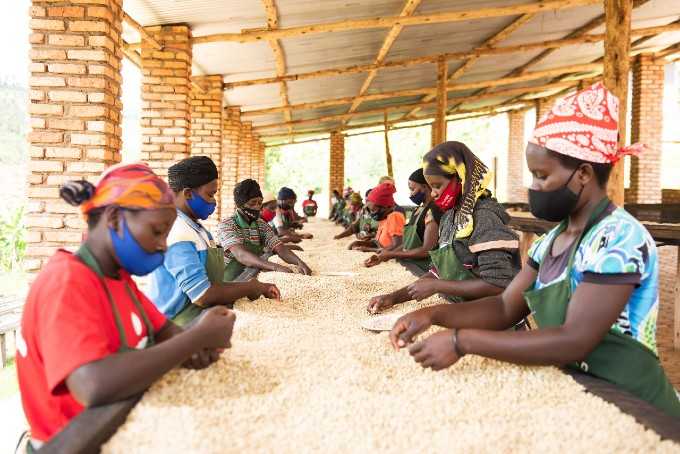GENEVA, Switzerland, KIGALI, Rwanda – The International Trade Centre (ITC) has joined forces with Farmer Connect to digitalize the coffee supply chain of women-owned small and medium-sized enterprises in Rwanda. Coffee is central to Rwanda, being one of the country’s most important exports.
The sector is a key driver of economic growth, stability, and improved income for over 450,000 coffee farmers. Agriculture contributes 26% to GDP in Rwanda, with 79.5% of the population reliant on mostly subsistence agriculture. It is therefore key to overcoming the challenges of COVID-19 that has pushed many people back into poverty..
The pandemic-induced lockdowns have demonstrated the importance of using digital channels to reach new markets and stay connected with existing customers. Moreover, as consumers increasingly lose trust in food value chains, buyers are under pressure to increase traceability and provide full transparency to consumers on where their goods are sourced.
A new type of blockchain technology implemented by Farmer Connect facilitates the collection and validation of this information in the coffee supply chain, by capturing the coffee farmer’s transactions. The International Trade Centre recognizes the importance of blockchain technology for traceability as it offers greater transparency in the supply chain and increased visibility for women-owned small holder farmers to international buyers.
As such, the International Trade Centre’s ecomConnect team is trialling the Farmer Connect technology with Nova Coffee, a woman-owned coffee processor engaged with 2,880 local small-scale farmers.
Under its SheTrades Rwanda project financed by the Enhanced Integrated Framework, this International Trade Centre pilot uses the Swiss-based Farmer Connect traceability software (powered by IBM) to track data in the supply chain for one container of coffee, from the farmer to the roaster.
In parallel, the International Trade Centre supports the branding and digital presence of processing companies, like Nova. The pilot will document the impact of these two activities on the value chain. They will demonstrate how collecting and capturing data on the blockchain, as well as creating story lines on women-owned Rwandan Coffee processors and their farmers, can build better market access and promote inclusive trade.
The results of the pilot will be shared during the International Trade Centre’s SheTrades Global flagship event in Dubai in February 2022.
Michael Chrisment, CEO of farmer connect® stated: “Supporting farmers in origin markets is core to our goals as a company, as we believe that technology-led traceability is key to establishing responsible sourcing and achieving a living income for farmers.”


















